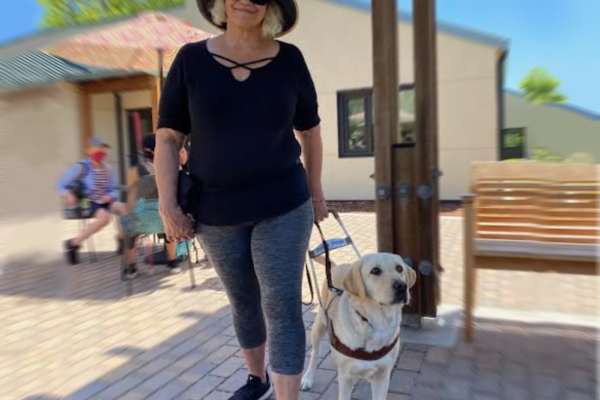Jeffry Ricker Ph.D.
Jeffry Ricker, Ph.D., is a freelance health and science writer in Scottsdale, Arizona, whose work focuses on disability issues. He was a professor of psychology for 26 years until becoming totally blind.
Ricker attained the Ph.D. degree in Cognitive and Experimental Psychology at the University of Illinois, Urbana-Champaign, with a research specialization in behavioral genetics and evolution. Early in his career, he studied the evolution of genetic systems, genetic correlates of learned behavior, and developmental stability in several species of Diptera. He then joined a group of investigators at Arizona State University, Tempe, studying biological and cognitive correlates of schizophrenia. He moved on to the University of Missouri, St. Louis, where he received postdoctoral training in clinical psychology. Throughout his time as a researcher and clinical trainee, Ricker taught courses in biology and psychology. He developed a love for teaching and decided to dedicate the rest of his professional career to higher education. He was hired to teach in the Behavioral Sciences Department at Scottsdale Community College, where he taught a wide variety of psychology courses. He also was active in faculty governance and served as chair of both an academic department and academic division.
Ricker has written many scientific papers, a psychology textbook, and several websites dedicated to the teaching of psychology. He now writes for general audiences about blindness, low vision, and other disability issues.
Currently, his interests include: the intrapersonal crises caused by threats to self-concept and personal identity in people experiencing sight loss; the interpersonal challenges caused by stereotypical beliefs about blindness; the cognitive and emotional demands of adapting to vision loss, especially for older adults who must learn entirely new ways of functioning in daily life; the disabling effects of institutional policies, procedures, and practices, especially for severely visually impaired people in educational and vocational settings; and the disabling effects of inaccessible websites, and healthcare technology.

